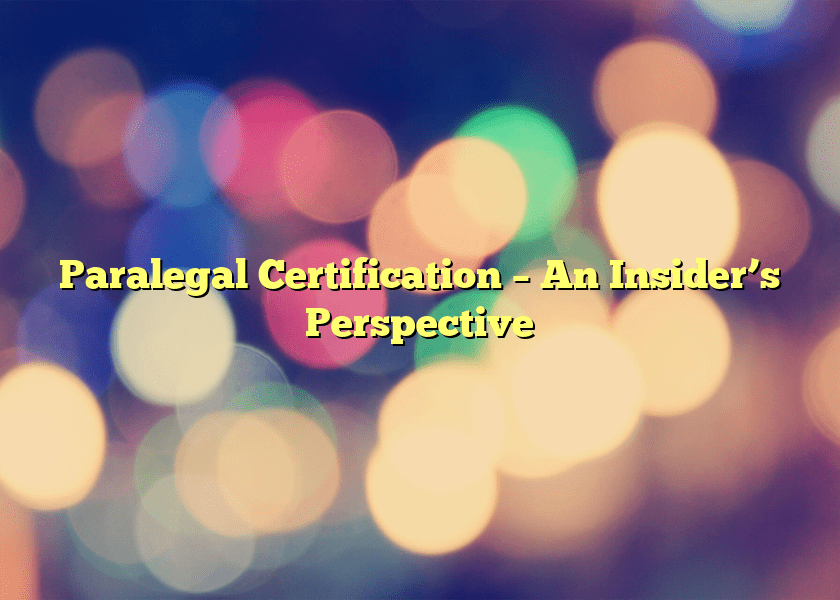Paralegal Certification – An Insider’s Perspective
Believe it or not, a paralegal (or legal assistant) is not a licensed profession in the United States. While some paralegals originally received on the job training when the profession came into existence in the 1960s and 1970s, more people entering the field today do so with certification. Certification is voluntary, not a requirement to be a paralegal. However, a paralegal with certification and special training is generally better prepared for promotion and will stand out in a field of candidates who might likely meet most qualifications but who are not certified.
To get certified as a paralegal or legal assistant (the terms are used interchangeably), one must pass a test from one of several paralegal organizations. Certification for paralegals is a little like that of attorneys. Just because an attorney passes law school doesn’t make him or her a lawyer. They must first pass the bar exam. The same situation is true for paralegals. Completion of a certification program does not make one a certified paralegal. It’s passing the exit exam that issues that certification.
In addition to entering the field as a certified paralegal, most of today’s legal assistant professionals choose to continue their education as an on going process. Some want to specifically develop certain areas of their work — like receiving additional training in commercial law, criminal law, estate planning, etc.
When you are searching for a certificate program to either begin or continue education in the paralegal field, you will have to weed out those programs that are not right for you. There are quite a few programs out there. Some say they are approved by or compliant with the American Bar Association. The best way to check is to contact the bar association in your state. Tell the bar association representative that you are seeking information about either entering the field or continuing professional development certification and ask for program referrals. While most states do not require certification for people to be a paralegal, the state’s bar association will be able to hook you up with some of the organizations and programs they do recognize as reputable.
If you are looking into various online certification courses or correspondence courses, check with your state’s attorney general’s office and better business bureau to see if any complaints have been filed about the institution offering the courses. The state’s bar association would be another good source of information as well.
While selecting your choice of study for paralegal certification may take some legwork initially, it will pay off for you in the future. Besides, the research you do as you search for certification information will better prepare you for the types of research you may end up performing as a legal assistant. Additionally, it may save you a lot of expense and heart ache in the future. Nothing would be worse than “completing” a paralegal training program only to find out that its certification is not recognized widely and after the expense and time, you basically have nothing to show.
This article may be reproduced only in its entirety.
